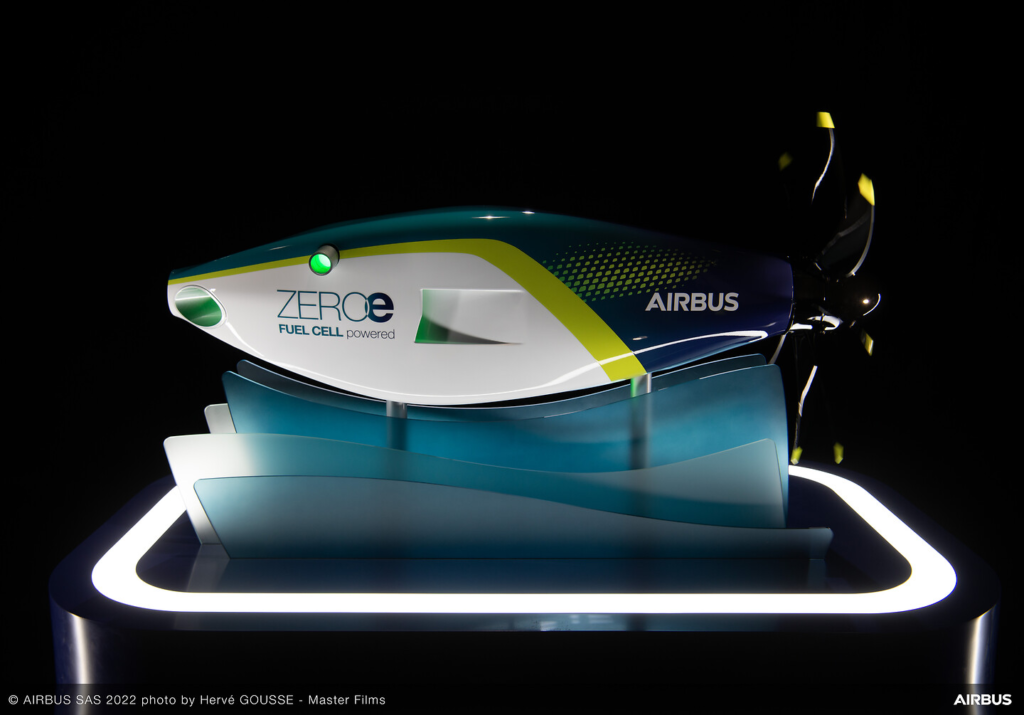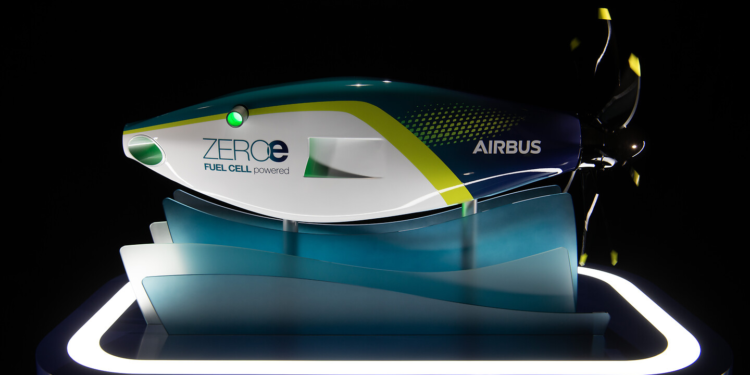
Airbus has announced the development of a hydrogen-powered fuel cell engine. The propulsion system is being considered as one of the potential solutions for equipping its zero-emission aircraft, which is expected to enter service by 2035.
Airbus plans to begin ground and flight testing of this fuel cell engine architecture on its ZEROe demonstrator aircraft by the middle of the decade. The A380 MSN1 flight test aircraft is now being modified to accommodate liquid hydrogen tanks and their accompanying distribution systems.
“Fuel cells are a potential solution to help us achieve our zero-emission ambition and we are focused on developing and testing this technology to understand if it is feasible and viable for a 2035 entry-into-service of a zero-emission aircraft,” said Glenn Llewellyn, VP Zero-Emission Aircraft, Airbus. “At scale, and if the technology targets were achieved, fuel cell engines may be able to power a one hundred passenger aircraft with a range of approximately 1,000 nautical miles. By continuing to invest in this technology we are giving ourselves additional options that will inform our decisions on the architecture of our future ZEROe aircraft, the development of which we intend to launch in the 2027-2028 timeframe.”
Airbus recognised hydrogen as one of the most viable choices for powering a zero-emission aeroplane since it emits no carbon dioxide when produced using renewable energy, with water being the most significant by-product.
There are two ways in which hydrogen can be used to power aircraft propulsion. First, hydrogen is burned in a gas turbine. Second, fuel cells convert hydrogen into electricity to power a propeller engine. In a hybrid-electric architecture, a hydrogen gas turbine can also be paired with fuel cells rather than batteries.
Hydrogen fuel cells, especially when stacked together, increase their power output, allowing for scalability. Furthermore, a hydrogen fuel cell engine emits no NOx or contrails, providing additional decarbonisation benefits.
For some time, Airbus has been researching the potential of fuel-cell propulsion systems for aviation. Airbus created Aerostack in October 2020 as a joint venture with ElringKlinger, a company with over 20 years of experience as a fuel cell systems and component supplier. Airbus presented its pod concept in December 2020, which included six removable fuel cell propeller propulsion systems.






